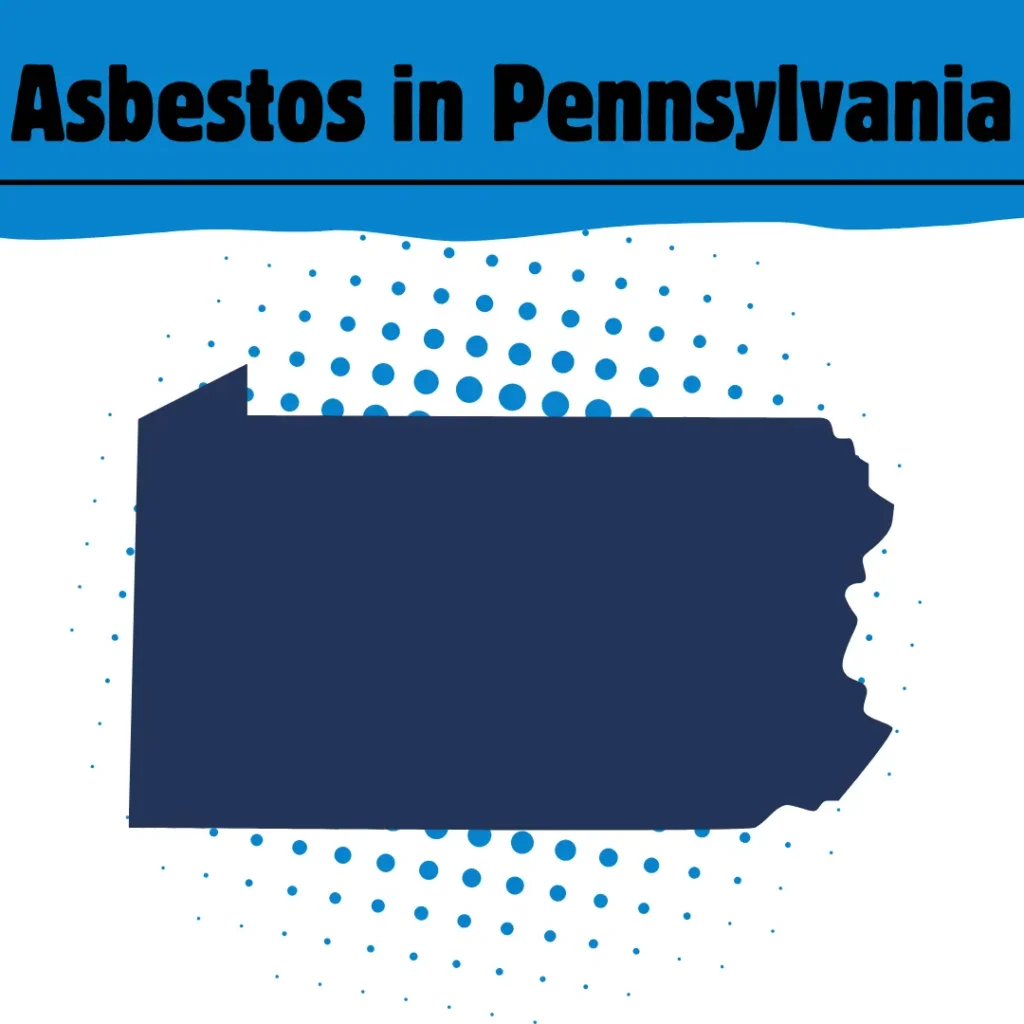Key takeaways: Asbestos in Pennsylvania is more common than in most other US states—both in natural deposits and via industrial pursuits. Massive corporations like U.S. Steel, the Pennsylvania Railroad, and Allied Chemical are responsible for exposing millions of people to asbestos. There are laws in place that ensure contractors and construction workers are educated about the safe handling and disposal of asbestos. Despite laws governing asbestos safety, the PA legislature hasn’t codified a plan to remove existing asbestos; this could be pursued as a preventative public health endeavor in the coming years.

Where is Asbestos in Pennsylvania?
There isn’t a way to ascertain all of the locations of asbestos in Pennsylvania. Asbestos can only be qualified by a laboratory—it isn’t visible to the naked eye. However, we do know that there are at least 37 significant deposits of asbestos scattered throughout PA. Four asbestos mines operated in the southeast, and many more non-asbestos mines have been contaminated by natural asbestos deposits. Rock formations and other environmental phenomena house trace amounts of asbestos (with different kinds of rocks having more asbestos than others)—PA’s mountain ranges are rife with asbestos.
Importantly, Pennsylvania is home to both natural deposits and imported (for industry) asbestos. Asbestos was used in steel production, car manufacturing, railroad building, the construction of pipes, the building of military supplies and barracks, and more. In PA specifically, the Pennsylvania Railroad, Philadelphia’s Naval Shipyard, Reading Iron Works, U.S. Steel Corporation, and Allied Chemical are a few of the notable industrial perpetrators of asbestos sites. This isn’t an exhaustive list of the places and job sites in which asbestos was used. Additionally, asbestos was used as a supplement for other products, like vinyl floor panels, paint, insulation, and protective equipment because of its durability. It’s insidious and cannot be quantified for this, among many, reasons.
How is PA Handling Asbestos?
Pennsylvania’s Asbestos Occupations Accreditation and Certification Act of 1990 requires any contractor, project manager, employee, or supervisor employed at an asbestos site to have certain qualifications. They must be educated on PA’s standards for safely handling and disposing of asbestos. This law ensures that employees, employers, and communities are safe from existing asbestos, especially as it’s handled during construction and renovation. As far as identifying asbestos—whether that be in natural deposits or in older buildings/construction sites—PA hasn’t codified a plan. In the wake of the 2024 ban—which banned the import and use of asbestos, but didn’t require asbestos removal—PA is complying with EPA standards. As it stands, though, existing asbestos still poses risks: people live, work, and go to school in buildings that contain asbestos. Hiking and outdoor activities are impacted by asbestos deposits. Existing asbestos is degrading and entering water supplies and soil. Even though PA is complying with federal law, there are still consequences for
Future Considerations
Pennsylvania policy makers should consider passing laws that a.) prioritize identifying asbestos in infrastructure; and b.) enforce the removal and replacement of said asbestos. The EPA set a precedent when they banned asbestos in March of this year—hopefully, they can maintain the integrity of that precedent by enforcing asbestos removal. Pennsylvanians would greatly benefit from a state-wide effort to remove asbestos from their children’s schools, their places of employment, and the outdoor spaces they cherish.
If you or a loved one has been diagnosed with mesothelioma or another asbestos-related disease, you should not have to face it alone. This website is filled with information about mesothelioma, such as common sources of exposure, some of the best hospitals to be treated at, and even legal information, should you wish to pursue a claim. For more information regarding you or a family member’s diagnosis, please call us at (800) 505-6000 or fill out the form on our Homepage.
Sources:
https://www.dep.pa.gov/Business/Air/BAQ/BusinessTopics/Pages/Asbestos.aspx